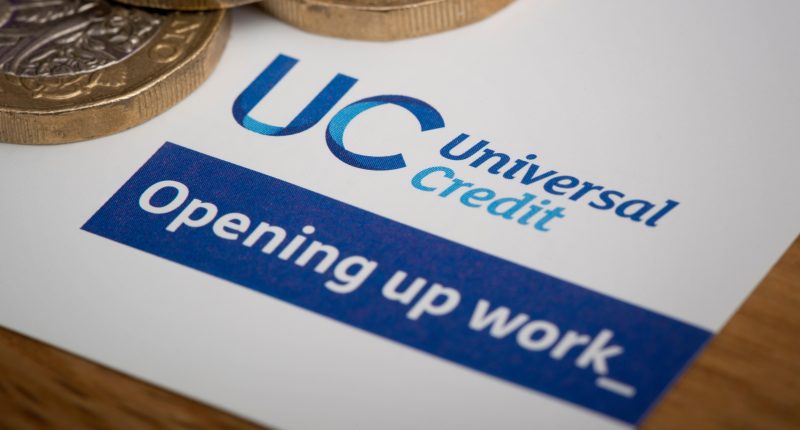A MAJOR high street lender has made a huge rule change to help Universal Credit households get on the property ladder.
Santander is now accepting Universal Credit payments when applying for a mortgage.
Mortgage experts have described the change, which came into effect this week, as “good news” for low income households, who can find it hard to get a mortgage.
Universal Credit isn’t just for those searching for a job. Around 40% of those on the benefit are in work, but are on a low income.
Budding buyers hoping to borrow with Santander will need to show that they have a main source if income from a job or being self-employed.
But their Universal Credit entitlement will also now count as secondary income for mortgage affordability purposes.
READ MORE IN MONEY
When applying for a mortgage, banks look at a range of factors to decide if they will lend money to you and how much, including income.
You’ll need to have your Universal Credit award letter and have been claiming for six months when applying.
Hopeful homeowners who claim Universal Credit can find it hard to get a mortgage, but it’s not impossible.
Some banks refuse to lend to benefit claimants, but others will consider your application.
Most read in Money
Eligibility differs depending on the bank, and some will accept your application – depending on your financial circumstances.
Karen Noye, a mortgage expert at wealth management firm Quilter, said: “Lenders taking additional income like Universal Credit is good news for low income households, especially where the low income is due to having a young family and is more of a short term measure rather than long term.
“Different lenders have different criteria with additional income, some will only take it if is guaranteed for the term of the mortgage while others will consider it if it’s likely to continue for say at least five years.”
How to get the best deal on your mortgage
IF you’re looking for a traditional type of mortgage, getting the best rates depends entirely on what’s available at any given time.
There are several ways to land the best deal.
Usually the larger the deposit you have the lower the rate you can get.
If you’re remortgaging and your loan-to-value ratio (LTV) has changed, you’ll get access to better rates than before.
Your LTV will go down if your outstanding mortgage is lower and/or your home’s value is higher.
A change to your credit score or a better salary could also help you access better rates.
And if you’re nearing the end of a fixed deal soon it’s worth looking for new deals now.
You can lock in current deals sometimes up to six months before your current deal ends.
Leaving a fixed deal early will usually come with an early exit fee, so you want to avoid this extra cost.
But depending on the cost and how much you could save by switching versus sticking, it could be worth paying to leave the deal – but compare the costs first.
To find the best deal use a mortgage comparison tool to see what’s available.
You can also go to a mortgage broker who can compare a much larger range of deals for you.
Some will charge an extra fee but there are plenty who give advice for free and get paid only on commission from the lender.
You’ll also need to factor in fees for the mortgage, though some have no fees at all.
You can add the fee – sometimes more than £1,000 – to the cost of the mortgage, but be aware that means you’ll pay interest on it and so will cost more in the long term.
You can use a mortgage calculator to see how much you could borrow.
Remember you’ll have to pass the lender’s strict eligibility criteria too, which will include affordability checks and looking at your credit file.
You may also need to provide documents such as utility bills, proof of benefits, your last three month’s payslips, passports and bank statements.
HSBC, Lloyds Banking Group, Natwest, Barclays and Nationwide will consider mortgage applications from benefit claimants including those on Universal Credit.
While Metro Bank will only accept Disability Living Allowance (DLA), Personal Independence Payment (PIP) and the State Pension as income.
DLA and PIP are available for people who have extra care or mobility needs because of a disability or health condition.
Whether or not your application is successful will depend on whether you have other types of income or assets as well as the benefits.
You’ll have to prove that you can keep up with the repayments.
Some banks will include specific conditions in their offer, such as only allowing you to use a certain percentage of your benefit payments to cover the mortgage.
You should find a mortgage adviser to help you find a suitable provider who will consider your application.
They’ll also be able to find the best value deal for you.
Remember though, they’ll take a fee for their services so you’ll need to factor that into your costs.
What other mortgage help is available?
As soon as you think you will have a problem with your monthly mortgage repayment – whether you can’t pay anything, can’t pay all of your monthly payment or can’t pay it on time – get in touch with your lender straight away.
They have certain schemes in place to help you if you’re struggling.
You can ask your lender about the breathing space scheme if you’re finding payments unaffordable.
Under the breathing space scheme, none of your debts will earn interest and no fees will be added for 60 days.
You’ll be protected from debt collectors and bailiffs.
You may also be able to apply for a payment holiday – this is when you don’t need to pay anything.
But interest and charges may continue to be added, and missed payments will need to be made up in the future.
Every company has a different policy so you’ll need to get in touch to find out what support is available to you.
Support for mortgage interest or SMI helps those on Universal Credit – and other benefits – by giving them a low-interest loan.
The help goes towards mortgage payments or towards loans taken out to help repair any damage to the home.
SMI is a loan that you will need to repay with interest when you sell your home.
You’ll get help paying the interest on up to £200,000 of your loan or mortgage.
But you’ll only get up to £100,000 if you’re getting Pension Credit.
The interest added to the loan can go up or down, but the rate will not change more than twice a year – the current rate is 3.03%.
Contact the office that pays your benefit to find out if you could get an SMI loan.
There are also several charities and services that offer free help and advice if you’re worried about money.
It’s always best to contact one of these services before thinking about debt consolidation or using a debt adviser who will likely charge you.
Citizens Advice is a free and impartial service which will help you come up with a plan to get on top of your debt including which payments to prioritise and how to reduce your living costs.
The organisation’s website has a useful page with advice on many aspects of debt, but you can contact them directly by phone, online or in person for more personalised help.
StepChange is another free advice service offering support and guidance online or over the phone, and it’s completely confidential.
You’ll need to provide details of your debts, income and household spending to get a clear picture of where your money goes.
Where possible, their advisers will help you come up with a plan to repay all your debts but in a way that you can afford.
National Debtline is a charity run offering free and confidential advice to people in England, Wales and Scotland.
READ MORE SUN STORIES
You can contact them online or over the phone on 0808 808 4000, between 9am and 8pm Monday to Friday, and 9.30am to 1pm on Saturdays.
An adviser will help you work out what you can afford to repay, and help you decide on the best solution for your debt.
Do you have a money problem that needs sorting? Get in touch by emailing [email protected].
Plus, you can join our Sun Money Chats and Tips Facebook group to share your tips and stories.









